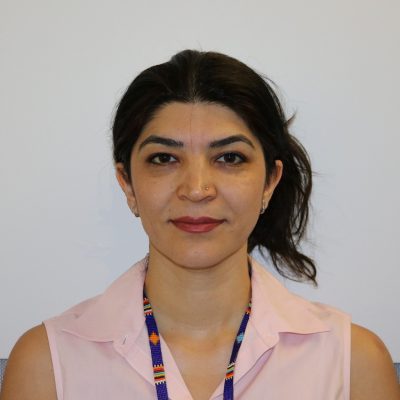Nika Saeedi is Team Leader – Prevention of Violent Extremism as part of the Conflict Prevention, Peacebuilding and Responsive Institutions (CPPRI) team. Nika leads UNDP workstream on hate Speech and serves as Religion and Development focal point, at the United Nations Development Programme (UNDP) in New York.
Leveraging her educational background on Religion and Culture and with over 25 years of experience, Nika has identified opportunities to influence and articulate global policy and programme solutions and forge partnerships to attract resources to across all aspects of the prevention agenda including PVE, peacebuilding, governance, and women, peace and security (WPS). This includes the workstream on Mental Health and Psycho-Social Support (MHPSS) in Peacebuilding, application of Behavioural Science to PVE and the use of technology for addressing hate speech, social media monitoring and sentiment analysis.
In addition to her work at the global level, Nika has worked in a variety of country contexts.
Nika led development of the global study ‘Invisible Women: Gendered Dimensions of Return, Reintegration and Rehabilitation’, conducted in partnership with the International Civil Society Action Network to respond to a pressing need for action-oriented research that improves our understanding of women’s roles in reintegration and rehabilitation processes, and the work of women-led organizations in supporting these processes.
Nika’s support to Government of Afghanistan in reformulating the local governance structure led to a 25% increase in Afghan women’s leadership in local governance. She guided an Afghanistan sub-national consultation process, promoting inclusion of women and minorities, and leading to a level of participation of women that exceeded the target set by the Ministry of Women’s Affairs by 39% in 34 provinces.
Nika designed and managed a results-based family planning project to improve family planning practices throughout Afghanistan, in collaboration with the Ministry of Public Health and in coordination with the Ministry of Women’s Affairs. The project design was selected as the most successful family planning project in Afghanistan. As result the Contraceptive Prevalence Rate in 13 provinces increased from 9% to 40% in 2006.

